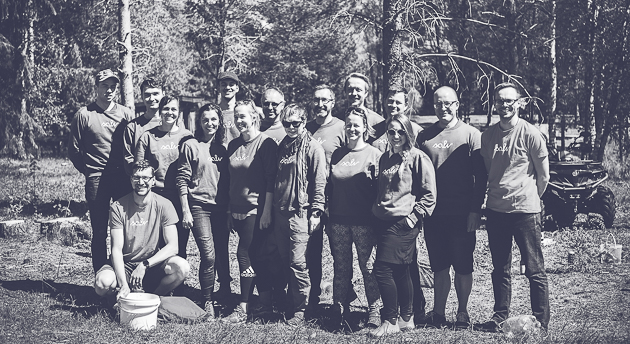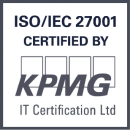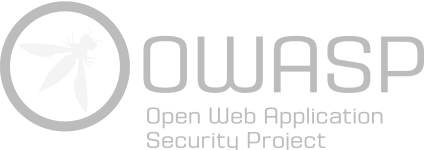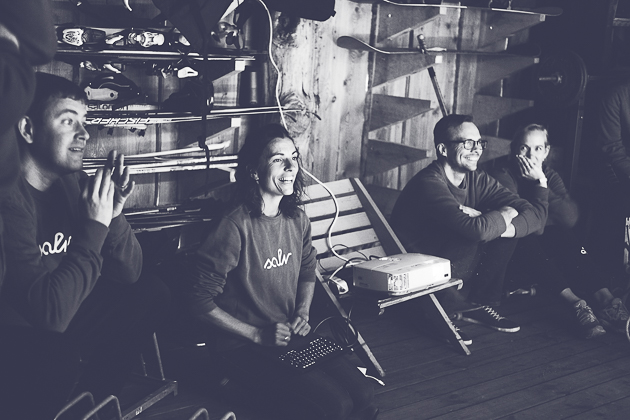 I’m Kairi. In 2014, I joined a tiny, fledgling startup called TransferWise. There were only 60 people then, with more grit than experience — all connected by the dream of making money fair to move around the world. It seemed like such a far off dream. Even back then, we were purposefully crafting the type of environment that we knew would set us up for success.
I’m Kairi. In 2014, I joined a tiny, fledgling startup called TransferWise. There were only 60 people then, with more grit than experience — all connected by the dream of making money fair to move around the world. It seemed like such a far off dream. Even back then, we were purposefully crafting the type of environment that we knew would set us up for success.
Fast forward to 2020, and a few weeks back I took part in the very first TransferWise alumni global meetup. It was incredible to see 77 people from around the world join a zoom call to hear stories from TransferWise alumni around the world on what they’ve been up to since leaving such a special company — that now has over 2000 TransferWisers.
So what makes TransferWise so special that so many former employees would jump on a zoom call in the midst of a global pandemic and virtual meeting burnout? TransferWise’s culture. Talk to nearly any current or former TransferWiser, and they will tell story after story about incredible humans, lifelong friendships, and TransferWise’s unique company culture.
When I was still working for TransferWise 3 years ago, a wise friend said something that excited me so much that I kept his words when I left:
“Some TransferWisers will leave to create a startup. That’s perhaps 30-100 startups in the next decade. Nearly all of those companies will continue to live by the same principles that have led to TransferWise’s success — autonomy + in-depth feedback, intensive customer focus, and no drama. They understand why it works. They know why it scales. They know why it radically increases their chances of success. And that will start a flywheel — these companies will be more successful. And, in turn, thousands more people will have fantastically fulfilling jobs like we do today.” - Jeff McClelland
That wise TransferWiser was Jeff, our COO and co-founder at Salv. I know when he wrote those words he never imagined he would be helping to launch his own startup. In fact, Salv was founded by 3 former TransferWisers — Taavi, Sergei, and Jeff. As I write this, still nearly half of our Salvers also worked for TransferWise. Which means we definitely took a lot of what made that culture special and brought it to Salv.
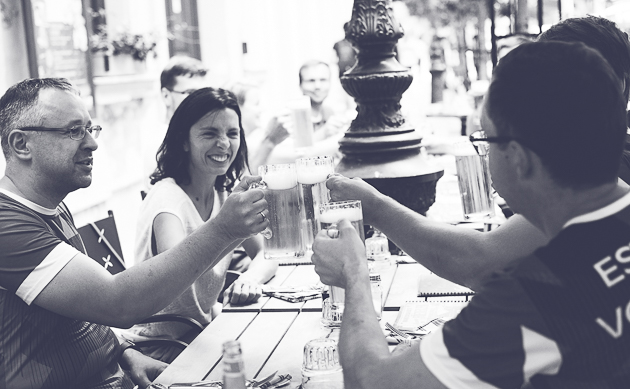
Building Salv’s culture
Like TransferWise, our fledgling startup, Salv, has chosen an ambitious and ridiculously hard mission — beat financial crime. We already know it’ll be hard, but we know it would be impossible if we created a culture of micromanagement, politics, fear, and a lot of rules. Which is why it’s so important that we already begin shaping Salv’s culture so it’s a place we all want to work.
Which is why, in our weekly Salv meeting, I often say it’s up to us to build the kind of environment where we all want to come back to work day after day. A place where we won’t just achieve our mission, but where we’ll grow as humans.
At around 20 Salvers at the moment, we’re still too small to write down our core values. But we’ve already developed some guiding principles, along with a few examples, to guide us on our path forward.
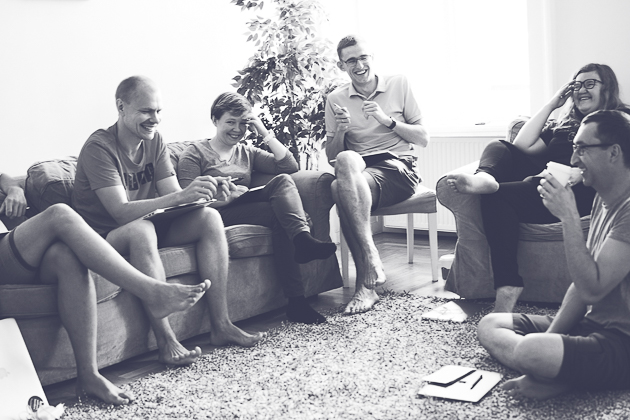
Start with “Why?”
In a world where it’s far too easy to fall into a trap of busy-ness, it’s up to us to make sure our work brings the greatest value for our customers.
That’s why it’s important to ask yourself a few key questions before you say “Yes” to that next task on your plate — regardless of whether it came from you, your peers, or your lead, or even our CEO.
- Why am I working on this particular issue that I am currently working on?
- What problem will it solve or how will it contribute to our goals?
- Is this the best use of my time as well as others’ time?
If it turns out you don’t feel comfortable with your answers to those questions, it’s always okay to take a step back and find a better way — or task — forward.
Example We learned from Salver’s feedback at our offsite that many Salvers wanted to strengthen their AML knowledge. So Robert invited his friend Henri to join him in creating our Friday Salv AML Academies.
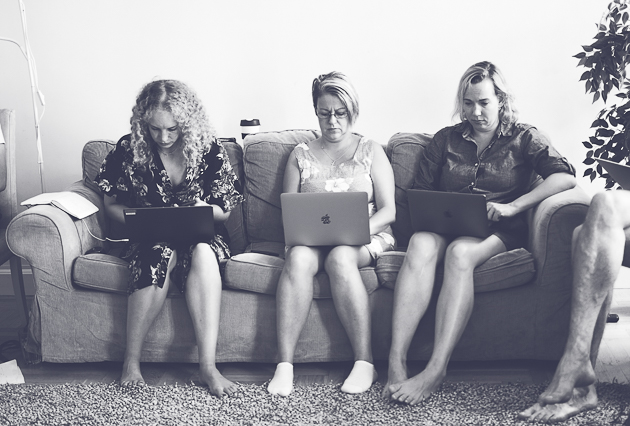
Learn and improve. Constantly.
We know all too well that criminals are insanely fast to adapt and change. Which is why we need to work in a way that we can adapt just as quickly to our customers and their needs.
Which is why we should be learning constantly how we can add more value to our customers. Few of us have personally caught any criminals or have been a part of sending someone to jail for money laundering — but our customers carry that huge responsibility every day. So it’s important we listen to our customers to discover what they’re really struggling with. And then do our best to adapt and change based on their needs so that, together, we can beat financial crime.
Example Several Salvers began organizing co-reading days, where they took large pieces of AML legislation and read it all together. Afterwards, they summarized their findings for our larger Salv team so we could all have a deeper understanding of the world our customers are operating in daily.
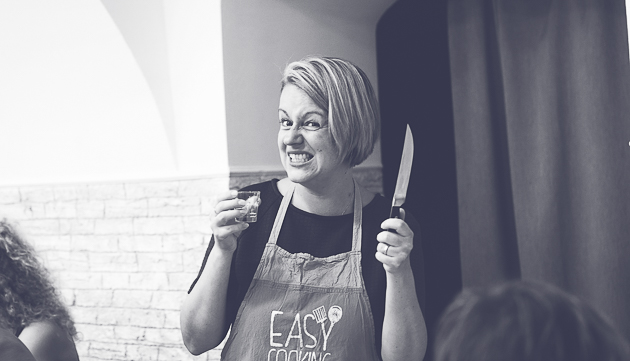
If something isn’t working — change it.
How many times can you remember thinking to yourself, “That’s silly. Somebody should do something about that.” If you think that often, then I have great news for you — Salv is probably the perfect place for you!
Why? Because, at Salv, we have permission — or more like a mandate — to improve what we see isn’t working. And if you’re already a Salver, you should know you were hired because you have a unique set of skills and personality that only you can offer. Which means the way you see the world is special — it’s quite likely that what you feel needs changing is something no one else has noticed. So life at Salv will be much easier and better if, instead of looking to our leads or others to improve things — we take initiative ourselves. Because, in the end, it’s up to all of us to make Salv better place for everyone.
Example Despite having a whole lot of meetings, many Salvers were often confused about what others were working on and felt like alignment was missing. Mallory noticed the same problem and created a #daily-updates channel for all Salvers. That helped cut down on many of our meetings and increase our ability to react quickly and align across the company without much effort.
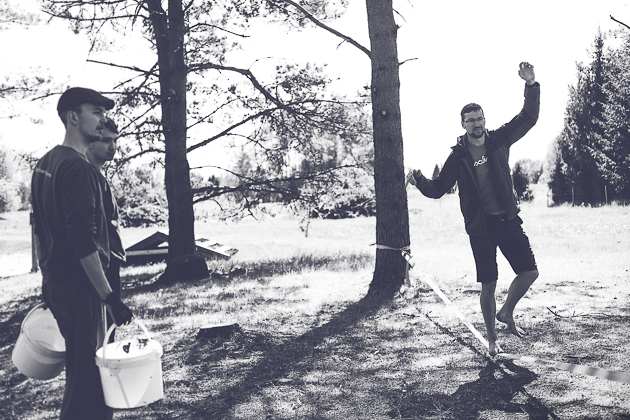
Be fearless — take risks.
Just working harder at the same thing that’s always been done never changed the world. Which is why we won’t beat financial crime if we just work a little — or a lot — harder.
At Salv, we can’t do what’s been done before. We’ll have to aim higher. We’ll have to be bolder. We’ll need to take smarter risks. We need to sometimes do things in a completely different way. So, when you’re working on everyday or long-term projects, keep these ideas in mind:
- If your idea is reversible and you believe it adds value, then go for it! You don’t need to wait for permission or consensus. If it doesn’t work out, learn from it and move on.
- If your idea isn’t reversible, discuss it with your lead and the people it influences the most.
At the end, if things don’t turn out as you expected, then you’ve just learned something. And that’s an invaluable lesson that can help you the next time around. And if things go wrong, then you can write a blameless postmortem and share it with the rest of Salv. What happened, who and how it affected others, what we learned, and how we can avoid making similar mistakes in the future.
As long as we use our ideas to improve for the next time, they’ll never be failures.
Example There were different views on whether we should put a lot of effort into building a synthetic bank with synthetic customers. Salv’s data science gurus decided it was worth trying. So they took the risk, built it, and, nearly a year later, all of Salv sees how beneficial it was.
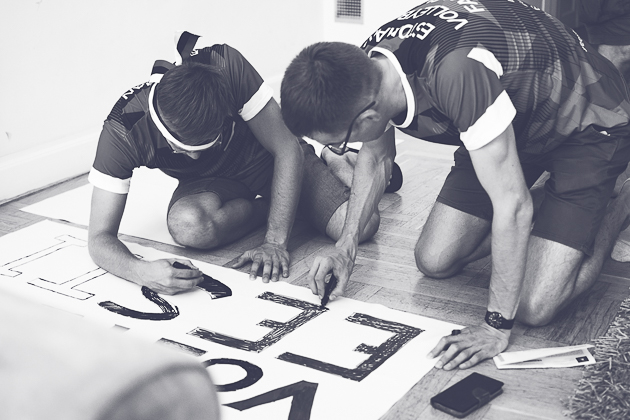
Have the courage to ask for help.
In the cultures many of us came from, asking for help makes us feel vulnerable. But think about that for a moment — it takes a heck of a lot of bravery to admit you’re in need.
That’s why, at Salv, asking for help isn’t a sign of weakness. We truly believe that it shows an incredible amount of personal strength to reach out for assistance. So when you get stuck, use our network of fellow Salvers, our investors, or other people. You have a great network that is happy to support you!
Example B2b sales isn’t easy, even for the most experienced companies. So we invited Gerri, one of Salv’s investors, to our offsite to help us figure out the best way forward in sales. And, months later, he still continues to mentor us when we need him.
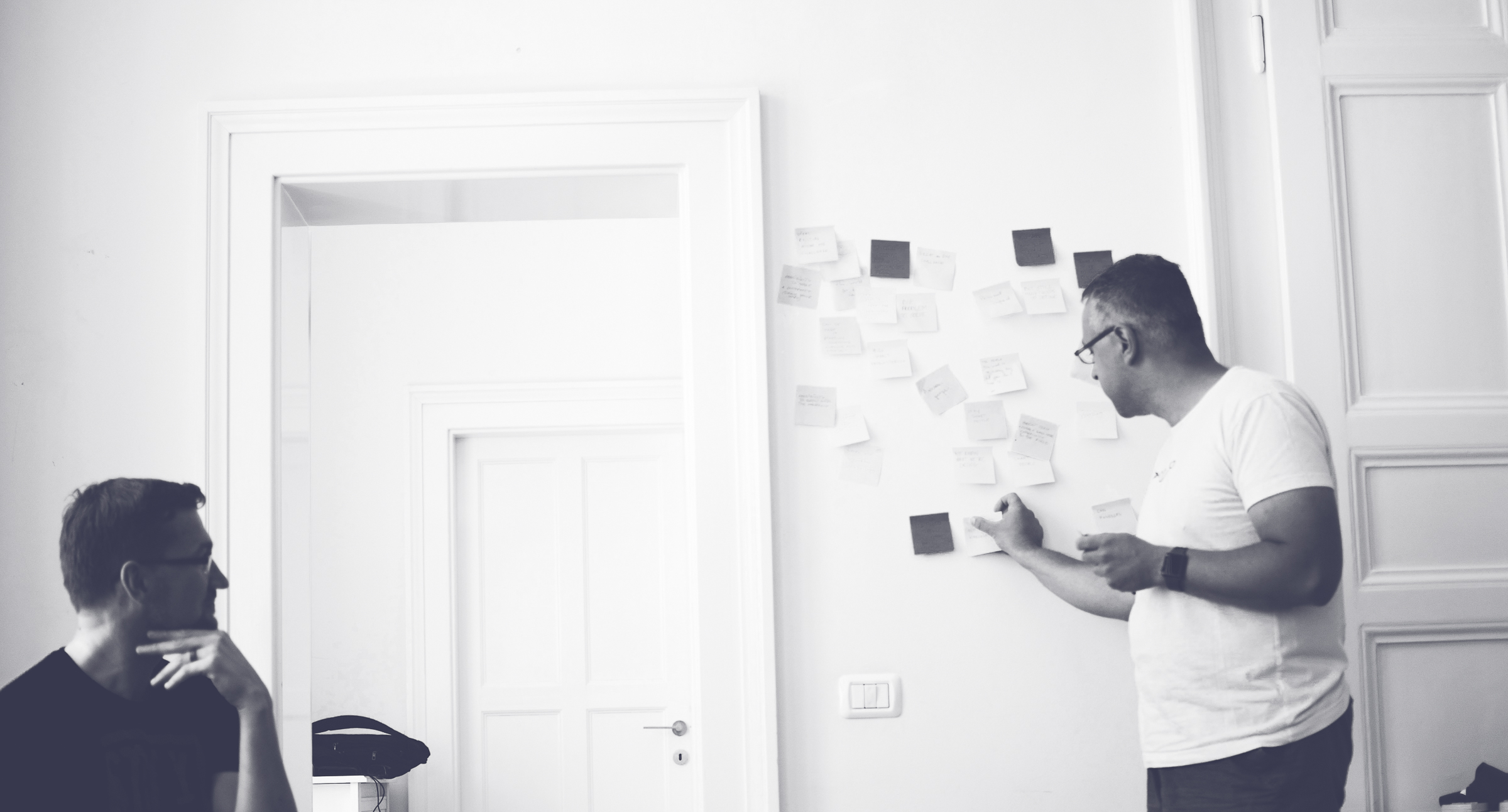
Learn faster through feedback.
None of us are mindreaders. Which is why, if we don’t speak up, then it’s pretty tough for things to get better.
So, Salvers, make feedback a part of your total experience. Ask for feedback on your work. Ask from your lead. Ask from your peers. Ask from someone who has no idea what’s going on. Most everyone has a valuable perspective to add. Which means it’s also important to give your own feedback to others — praise their work specifically or give some ideas on what can be improved. And, if you want bonus feedback points, just work together as much as you can, you will be able to get, and give, lightning-fast feedback.
Example On her own, Kristi took the initiative to send out the form to collect feedback from the entire Salv team on what she can do to improve.
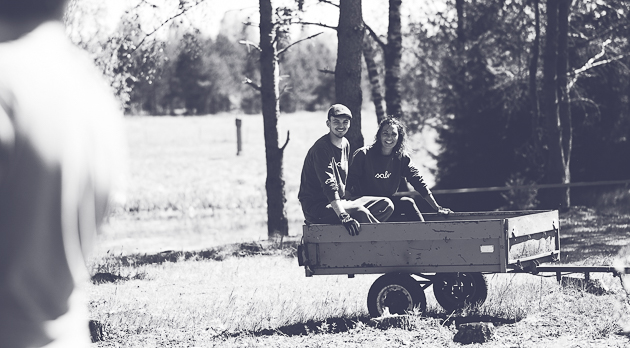
Work from wherever and whenever.
As I write this, the world has been taking part of a global remote work experiment. But long before that, we’d decided we wanted to do things differently at Salv.
We do have two offices — both in Estonia, one in Tallinn, the other in Tartu. But, really, work from the places and times that fit you and your family best. Our biggest priority is just making sure you’re available for our customers and other Salvers in a way that ensures we keep working well. Go to the forest, stay at home, live in Spain for a few months, whatever fills your soul. Making your own decisions of when and where to work requires a lot of self-leadership, but it’s so worth it.
Example Both Erik and I decided, separately, to follow our dreams to live in a much warmer climate. So he moved to Italy and my family and I moved to Spain for a few months. While both of our dreams were shortened by the onslaught of the pandemic, it doesn’t change the fact that remote working is totally fine at Salv.
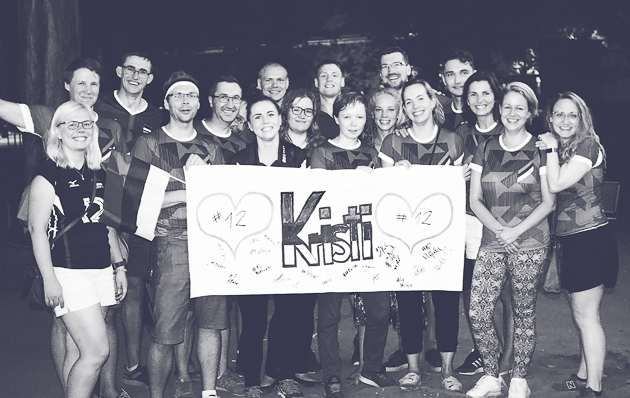
Remember it’s a marathon, not a sprint.
If you’ve ever worked at a startup before, you may know someone personally who’s burned out. Which means you probably know that the aftermath of burnout is devastating.
That’s not what we want for Salvers, so you won’t find 80-hour startup working weeks here. Science is starting to show that the 40-hour work week, based on factory workers in the early 20th century, doesn’t work like it used to. In Salv, 40 hours is fine, maybe even 30 if that’s all you need. Yes, there will be time customers need more from us, but you won’t find Salvers grading you based on the hours you work — it’s about the impact you have. Because we want to work smarter, not harder.
To be productive, yes we’ll need to put in the work, but we’ll also need to take care of our bodies, minds, and families outside work. It might be hard to find just the right balance, but we’ll never beat crime if we try to run a marathon at a sprinter’s pace — we’ll burn out long before we reach the finish line.
Example Sad to say, I‘ve personally been very close to burnout before. Thankfully, though, I caught the signals in time and realized it was time to hit the pause button for a bit. So, now, several years later I can now identify when I need to take a break — and then I take one. Because I know all too well the pain that being on the edge of burnout can bring, when I notice people around me teetering on the edge of overwork, I encourage them to take some days off to recharge. Because no matter how important the work is, it’s not worth sacrificing ourselves, our families, and our relationships.
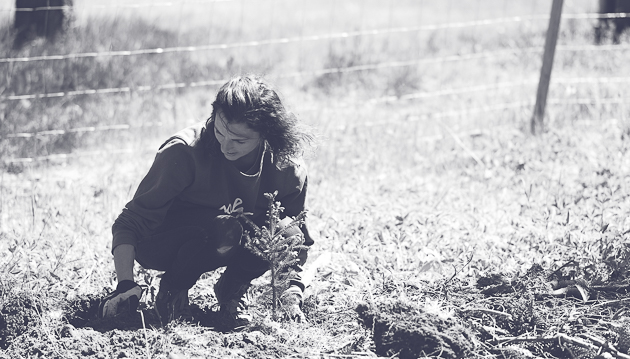
We’ve only just begun
We’ve only just begun our Salv journey, so these principles will evolve over time. And it’s always good to remember that we’re all humans. Which means we have good days where we live each and every one of these principles, and bad days where we don’t. But, still, ultimately it’s up to all of us to build the type of environment we want to live in. Which is why it’s up to us to hold one another accountable to live these principles. To give feedback when some behaviours don’t match, and to notice and amplify great examples to make sure we do more just like that. Together, hopefully, we can build a culture — and product — that customers and Salvers alike will love, and will leave financial criminals trembling in their boots. Because, who knows, maybe in 10 years there will be a reunion of Salv alumni who think back to their time at Salv and remember it as the time when they had a ton of impact, contributed to making the world a better place, grew a lot as professionals, and were surrounded by incredible humans. I can’t wait to see.
If you want to know more about our open positions, check out our career page.
